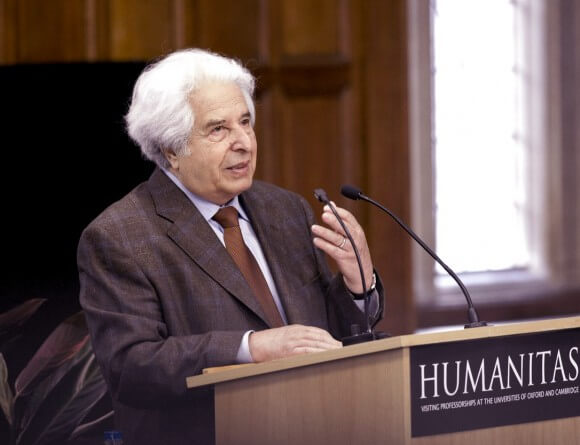
The other day I picked up some of Haaretz’s interview of Holocaust scholar Saul Friedlander, in which he said that it was legitimate for the left to analogize trends in Israeli political culture to Nazi actions in the 1930s. David Bromwich, who has a new book out on Moral Imagination, wrote to explain Friedlander’s importance:
Friedlander is one of the great scholars of the 20th century; and the integrity of the plain speaking in that interview is remarkable. Contrast the American scholars who see the viciousness of Israel’s social and political arrangements in regard to the Palestinians, but who say nothing, on the ground that only Israelis have the right to criticize Israel in public. Compare, too, those who treat the Holocaust as an event about which we are compelled to be silent because nothing in history approaches it. Friedlander is not cowed by those reasons for reticence.
His distinction between German anti-Semitism in the ’30s and the building and working of the death camps in the ’40s deserves to be noticed. The death camps started operating in 1942. The race laws against Jews–the prelude–were passed in the mid-’30s; Kristallnacht, the big Nazi government-sanctioned pogrom, waited until November 1938. Friedlander has recognized that the settler movement is already habituated to small pogroms, and that this falls in with the government design of legalized dispossession of Palestinians.
Menachem Begin was the first Israeli prime minister to invoke the Holocaust for political purposes. There was shock at the time when Begin used it to justify the 1982 Lebanon War, but we got over the shock, and got used to the demagogic practice. On Friedlander’s view, the rhetorical use of the Holocaust by the extreme right should be corrected and explicitly opposed. He sees the catastrophe not as a unique instance of something non-Jews did to Jews, but as an extreme instance of something people have done to other people, and still are capable of doing, anywhere.


Great piece. Cogent insight into intellectual cultural dysfunction.
It would be interesting to know when apologists for Israel started denying that things like the Turkish killing of Armenians and the German killing of Gypsies were also genocides. The (Jewish) lawyer Raphael Lemkin, who coined the word “genocide” and drafted the international Genocide Convention, very much had the Armenians in mind in his work. But he died in 1959.
Great, valuable post. Thanks to David Bromwich.
“The race laws against Jews–the prelude–were passed in the mid-’30s; Kristallnacht, the big Nazi government-sanctioned pogrom, waited until November 1938. ”
The Nazis had a similar build up over a shorter time period in the Netherlands .
It was always one step at a time. Nothing necessarily alarming on its own . Designed to appeal to law and order types. All towards the same sick goal. Just like the State of Israel.
http://www.holocaust-lestweforget.com/holocaust-segregation.html
Menachem Begin was the first Israeli prime minister to invoke the Holocaust for political purposes.
No, Ben Gurion did it early and often. Lesser officials did too. Abba Eban browbeat Mike Wallace on US network television for “committing blasphemy,” when Wallace compared the ethnic cleansing of Palestinians to the ethnic cleansing of Jews during the Holocaust. http://www.hrc.utexas.edu/multimedia/video/2008/wallace/eban_abba_t.html